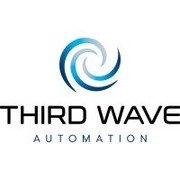Robotic Process Automation (RPA) Tools

Top Rated Products
(1-2 of 2)
All Products
(51-75 of 155)
Explore recently added products
Videos for Robotic Process Automation (RPA) Tools
Learn More About Robotic Process Automation (RPA) Tools
What is Robotic Process Automation (RPA) Software?
Robotic Process Automation (RPA) tools are software that support business process optimization through the automation of existing repetitive tasks in a workflow. RPA is used by business users to build and deploy software robots (bots) that mimic humans, interacting with multiple software applications to execute and speed tasks.
RPA implementation provides fully reproducible and error-free execution of structured business processes by bots. It frees up your labor force from boring, repetitive tasks, maximizing productivity by enabling workers to focus on higher-value activities. There is currently a high adoption rate of RPA software in the financial, healthcare, and insurance industries but RPA implementation is exponentially increasing as it is proving useful across almost all industries. One example of RPA is the customer service chatbot that greets potential customers landing on your company webpage.
How does RPA differ from Business Process Management and Business Process Automation?
At first glance, RPA may seem very similar to Business Process Management (BPM) and Business Process Automation (BPA) but RPA uses a different strategy than that seen in BPM and BPA. In RPA, AI software robots observe how enterprise applications are used by employees in their present states. Robots, or AI, then provide automation to speed work as it happens. Rather than changing how the applications interact with each other as in BPM, the robots in RPA manage existing repetition in a workflow without altering it.
Therefore, BPM, RPA, and BPA are complementary processes. While BPM is meant to provide workflow management and optimization through workflow creation and improvement, BPA is any method used to simplify this workflow, and RPA provides successful automated routing through this existing workflow.
Robotic Process Automation Tools Features & Capabilities
Most RPA products offer:
- Desktop or centrally managed automation
- No code automation
- Drag and drop bot builders
- Attended or unattended bots
- Movement of data into and out of third party applications
- Excel or web browser automation
- Automated data extraction
- Embedded AI
Some RPA products also offer:
- Pre-built bots or templates
- Workflow recording
- Task scheduling
- Multiple concurrent bots
- Analytic features
- Scalable solutions
Start a Robotic Process Automation Software comparison
Robotic Process Automation Software Comparison
The biggest consideration to make when on the market for RPA bots is whether or not they'll be attended or unattended. In many cases, you can find RPA products that allow you to run bots that can perform hybrid processes. Once you decide on if you'd like attended, unattended, or a hybrid of the two, you can then look to RPA software that not only fits your needs in this realm based on whether you want a free or open-source RPA tool, or a paid solution with added support and features. Below we dive into the differences between attended and unattended bots to help guide your decision-making:
Attended vs. Unattended Bots
RPA bots can be attended or unattended and both are important tasks in an RPA deployment.
Attended robots collaborate with individual employees on business activities where human intervention is required, speeding up repetitive front-office tasks. Attended bots usually run on user workstations and are triggered by system-level events that can give and take data to and from human workers. Attended bots increase productivity.
Unattended robots complete tasks or interact with applications without human involvement, maximizing cost and performance benefits for any variety of back-office activities. Unattended bots usually run on the organization’s servers and can be triggered by specific events or they can be scheduled. Unattended bots free employees from routine tasks.
Pricing Information
Pricing is not standardized across RPA products and will be custom quoted based on your organization's needs. Some vendors charge by license or user ($3,000 - $30,000 annually) while others charge by bot or process ($2,000 - $15,000). Depending on the number of bots or licenses you purchase, expect to pay anywhere from $5,000 to $150,000 for a full RPA solution. RPA vendors almost universally offer a free trial prior to purchase.































